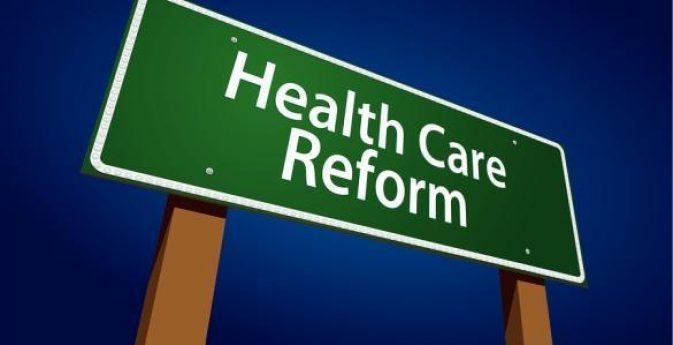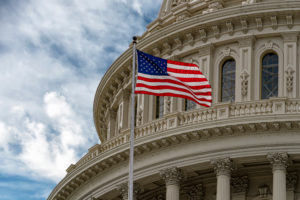High Healthcare Costs Pose Major Barrier to Minority Entrepreneurship. Personalized Healthcare Reform Can Help.

Alma Beltran is a successful black entrepreneur, but she can’t afford healthcare due to America’s broken healthcare system. As the owner of Graphic Image Label in Chula Vista, California, Alma faces the tough choice between her business’s health and her personal health — a dilemma that is all too common among minority entrepreneurs today.
“So far this year, I have not been able to afford paying my premium,” explains Alma. “I must now decide between going without insurance and keeping my business, or closing my business so I can find a job with health coverage.” Consider how this crushing dynamic depresses minority entrepreneurship nationwide.
Runaway healthcare costs have become one of the biggest barriers for small employers looking to hire and grow. According to the Kaiser Family Foundation, the average annual family healthcare premium at a small business with fewer than two hundred employees in 2022 was $22,186. Imagine how difficult it is for ordinary, low-margin small businesses to cover this outrageous cost while remaining profitable.
According to a 2021 survey by Small Business Majority, more than one in three small business owners say it’s difficult to afford healthcare coverage, and more than two-thirds say the problem is getting worse.
This challenge is especially difficult for minorities, whose businesses tend to have lower profit margins. Among black, Asian, and Latino respondents, 50 percent, 44 percent, and 43 percent, respectively, say that attaining health coverage is a challenge. Healthcare reform to lower prices would help many Americans and minority entrepreneurs most of all.
Entrepreneurs have been among the biggest victims of Obamacare. To acquire healthcare coverage, they are generally relegated to plans in the individual and small group markets that have both seen some of the biggest premium increases over the past several years.
Such plans are subject to numerous inflationary restrictions, including mandatory essential health benefits, that large employer group plans are not. This healthcare coverage disparity is just another example of how the deck is stacked against small businesses.
Mandatory essential health benefits, such as maternity and newborn care, mental health and substance abuse, and pediatric services, don’t make sense for many small businesses. Yet these necessary additions dramatically drive up plan costs, putting a damper on funds that could otherwise be reinvested in the business. As a result of these skyrocketing healthcare costs, the number of small businesses offering health coverage fell by nearly one-third between 2008 and 2017.
Job Creators Network developed a pro-small business healthcare alternative called Healthcare for You — healthcare reform centered on the doctor-patient relationship and focused on clearing the bureaucrats and politicians from the exam room. Such healthcare reform empowers patients with choice and transparency, allowing small businesses to dramatically cut their healthcare costs if implemented.
Instead of relying on the government, which only drives up healthcare costs, Healthcare for You harnesses the market forces of choice, competition, and transparency to drive costs down. In contrast to government policies, market solutions eliminate backroom deals and hidden contracts that artificially inflate prices.
Healthcare for You would expand tax-free healthcare savings accounts, nontaxable portable insurance plans, and direct care at independent, price-transparent medical providers. These reforms would dramatically lower healthcare costs for entrepreneurs and small businesses.
These healthcare policy improvements would also allow Americans to be less tied to their employment healthcare coverage, allowing them to stay covered as they move between jobs and in and out of the labor market. Such reform would spur minority entrepreneurship in particular, as countless entrepreneurial minority employees would no longer remain stuck in dead-end jobs merely for the health benefits.
Eliminating and reducing regulations on physician paperwork, mandated essential benefits, and geographic and provider network limits would also significantly lower healthcare costs, allowing all Americans to access coverage and care at lower prices.
Furthermore, the government can also help small businesses by allowing greater use of association health plans. AHPs empower small businesses to band together to purchase health insurance in bulk, lowering prices and mitigating risk. AHPs are also exempt from many of the burdensome regulations in Obamacare plans that drive up prices for entrepreneurs.
The Trump administration issued a rule in 2018 to expand AHPs to sole proprietors and ease requirements for them to be set up, yet a federal judge struck down the rule in 2019, leaving AHPs stuck in regulatory uncertainty.
The publication Black Freelance indicates the significant entrepreneurship dividends that cheaper healthcare options would have for minority sole-proprietorships:
One of the most expensive and intimidating responsibilities that freelancers take on is health insurance. I talk to plenty of aspiring freelancers who’re terrified of making The Jump because of the cost of insurance. And you know what? They have every reason to be concerned. Missing an insurance payment might not mean you’re homeless or something’s getting repossessed, but it can mean life-threatening and finance-destroying catastrophe if you have an accident or a health issue at the wrong time.
When combined with expanded tax-free health savings accounts that facilitate direct care at transparent, low prices, AHPs can make healthcare affordable again. These reforms will stop healthcare costs from being a hurdle to small business creation, especially minority small business creation. Instead, they will allow minority entrepreneurs like Alma to simultaneously protect their personal health and business health.





